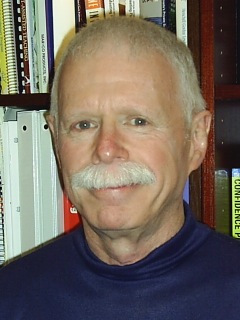
SEASON 3 EPISODE 4
November 16th at 10 AM PT/ 7 PM CET
Evolutionary Peer Mentoring: Growth Groups for Older People?
WITH REY CARR
Evolutionary growth groups – what is that? And peer mentoring, what might that be?
Well, I have some idea about peer mentoring: people coming together and share their knowledge and give advice to each other. Nobody is the leader, but leadership emerges by what we call “natural hierarchy” in Integral Theory. This means that who has the knowledge in a particular area takes over temporary leadership, for another area the leader will be someone else.
Let’s explain Rey Carr what his experience is with creating those groups.

STREAMED LIVE HERE on November 16th 2017
REY CARR WRITES
For most people in my generation, work provided meaning, connection, friendship and feelings of worthiness, a sense of accomplishment, and a way to find purpose in life. But when formal work ends, many struggle to regain the life nutrients they gained from 30-40-50 or 60 year careers. Permanent loss of these nutrients can lead to isolation, loneliness, grief, deterioration of mental and physical health, and premature death.
Some people find sustenance in group activities such as card playing, painting and sculpture, physical fitness, sports, and other skill-based activities that engage the brain and body in mild exercise. Some others find ways to continue to develop themselves from mindfulness, meditation, Eastern practices, or even living out a bucket list of activities.
Unfortunately, sometimes these activities do not tap into the experience and wisdom which long-term living on our planet provides. In addition, such activities are often self-serving and nourishing, yet fail to give back to society, family, friends or leave a legacy to others. Most importantly, older retired workers or senior citizens are often relegated to obscurity and treated in stereotypical fashion by a youthfulness-worshipping society. Thus the life lessons learned by older person are shut away or cut-off, barely tolerated and many times ridiculed.
Developmental psychology, for many years, contributed to this lack of attention to seniors. Few theorists, practitioners or academics recognized the continuous development of persons throughout the life cycle. “You can’t teach an old dog new tricks” is a truism that even seniors hold onto in thinking that their ability to learn, change and continue to grow is stunted, curtailed, or impossible.
From my experience working as a child and adolescent therapist, I learned how much inner wisdom people at all ages had. I decided to start a way for youth to help each other using this inner wisdom, their capacity to learn, and their motivation to help their peers grow in positive ways. I found that even children with limited life experience often knew things from that experience that could contribute to their own growth and the growth of others. Working with teens, young adults, university students, employees and executives I developed group interaction models that enabled participants to draw upon the wisdom and experience of each other in positive ways. Essentially called peer mentoring, these groups use a structured model that sets their own agenda, establishes their own norms or process, and focus on outcomes that include enjoyment, laughter, meaning and continuous learning.
In our CONSCIOUS AGEING series,we intend to explore ways of living the “third half od life” in a different way than it has been in the past and what common understanding seems still to expect: Old people need to step back, maybe care for their grandchildren, but not pretend to do something important anymore in their lives – especially if it could compete with what younger people believe to be their privilege. Older people are supposed to become invisible, aloneness and abandonment is the normal situation, nursing homes can care for their bodies until they finally give up and die.
Well, the Boomer generation interrupted these habitual expectations and is now, coming to age, exploring how a different approach could look like, for their own sake and for creating role models for who comes after us. One of them are GROWTH GROUPS, a very interesting model of co-creating our future as elders in western societies.
REY CARR HAS FINISHED A BOOK ON MENTORING AND WANTS TO ADD
The book title: “Shaping the Future: 150+ Canadian Mentoring Relationships that Make Canada Great, Creative, Innovative, Productive, Successful and Welcoming”
Book description: This book coincides with the celebration Canada’s 150th Anniversary. It includes more than 150 examples of mentoring relationships from all walks of life in Canada including sports, history, leadership, the arts, entertainment, acting, Broadway, music, politics, and business. The author also included ideas about the key principles associated with mentoring; how mentoring and coaching are the same and different; illustrations of mentoring relationships from his own life and what he learned from them; and examples of mentoring relationships experienced by well-known and lesser-known Canadians. To make it easier to find particular people and who mentored whom, the author has included a name index.
Access: Free download for visitors to The Wisdom Factory: http://goo.gl/IsJvWr
ABOUT REY CARR
Shaping the Future: 150+ Canadian Mentoring Relationships that Make Canada Great, Creative, Innovative, Productive, Successful and Welcoming”
Free download for visitors to The Wisdom Factory: http://goo.gl/IsJvWr


